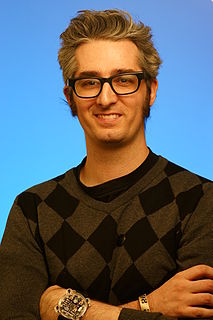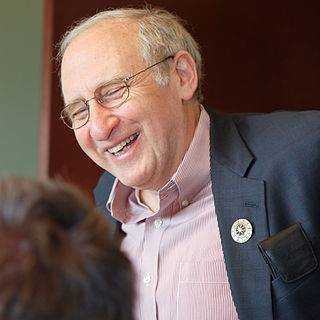A Quote by Alan Kay
In computers, every 'new explosion' was set off by a software product that allowed users to program differently.
Related Quotes
There's no question here that every effort is made to earn as much money off tobacco as possible. At the same time, the same people who are doing everything they can to get every penny out of this product, are condemning its use, are bludgeoning and impugning its users, and denying them every day more and more places where they can legally use the product. In the process, they have been the architects of the black market. The people in charge of all this have themselves set the stage for black market circumstances to prosper and thrive.
The software programs that make our body run ... were evolved in very different times. We'd like to actually change those programs. One little software program, called the fat insulin receptor gene, basically says, 'Hold onto every calorie, because the next hunting season may not work out so well.' That was in the interests of the species tens of thousands of years ago. We'd like to turn that program off.
Proprietary software keeps users divided and helpless. Divided because each user is forbidden to redistribute it to others, and helpless because the users can't change it since they don't have the source code. They can't study what it really does. So the proprietary program is a system of unjust power.
For the average home-user, anti-virus software is a must. A personal firewall such as Zone Alarm and running a program like HFNetcheck, which is a free download for personal users. It checks your system to see if anything needs to be patched. I'd also recommend a program such as SpyCop to periodically check for any spyware on your system.































